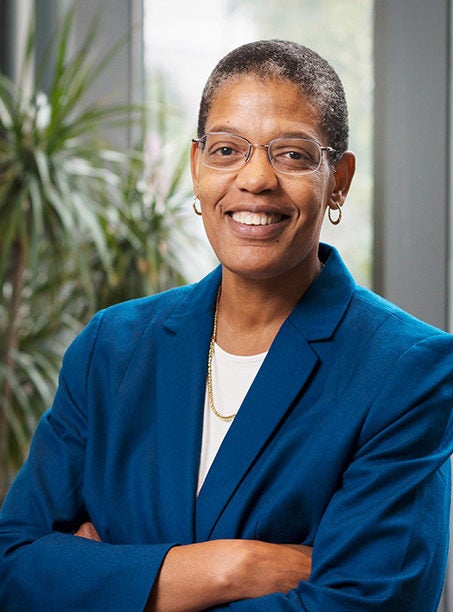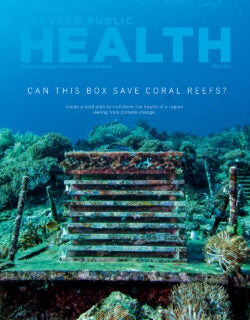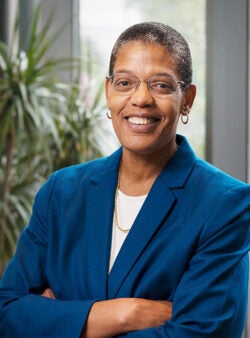From the Dean
Message from Dean Williams: Public health needs public trust
Public health is a primary factor in our civic life. It undergirds our economic and national security. This reality had long gone unnoticed until the ripple effects of the pandemic put public health top of mind for nearly every person, in every country, in one way or another.

People today want trusted news related to epidemiology, environmental justice, immunology, food security, and social determinants of health. They know the status quo will not cut it moving forward.
I believe we must seize this moment and turn it into a movement where the mission is to invest in public health: the tools, the people, the partnerships. Academics, government leaders, philanthropists, the private sector—we must work together because we are all in this together.
Two of the greatest challenges of our era—infectious disease and climate change—fall squarely in the realm of public health. Our global lack of capacity to adequately respond to both issues stems largely from a lack of leadership and a lack of trust. Too many people do not trust science, and they do not trust public health leaders. Our failure to connect has come at a heartbreaking cost as countless people fail to heed safety measures to ward off COVID-19.
Public health requires, first and foremost, that we communicate our ideas clearly, powerfully, and persuasively to the people seeking answers. To heighten and amplify our voices the Harvard T.H. Chan School of Public Health has hired Stephanie Simon as our inaugural vice dean for strategic communications and Michael Fitzgerald as our new editor-in-chief of Harvard Public Health. They are tasked with expanding our reach and impact as a reliable voice in public health.
In this issue, Mike brings forward innovative approaches to combat climate change and the anxieties it triggers. Today, people the world over are demanding that policymakers seize the short window we have left to stop things from getting worse, and they are doing so with an urgency most acute among the young. Indeed, at the global climate conference in Glasgow last fall, world leaders credited youth activism with reinvigorating climate negotiations.
The beauty and tragedy of this situation are hard to miss. The next generation is demonstrating a passionate commitment to tackling climate change. They are providing us with new reasons for hope even as they suffer knowing adults have let them down. A recent landmark survey found climate change is causing “eco-anxiety” in the daily lives of young people.
As public health leaders, we must broadcast clear and compelling ideas that will help build a resilient and sustainable post-pandemic future. Our field has transformed the health of nations. Now we are called to reassert our role as change agents. I welcome a collective return to our activist roots as together we strive to build a better tomorrow and, as we have done before, lift the health of the world.
Photo: Ben Gebo / Harvard Chan School

